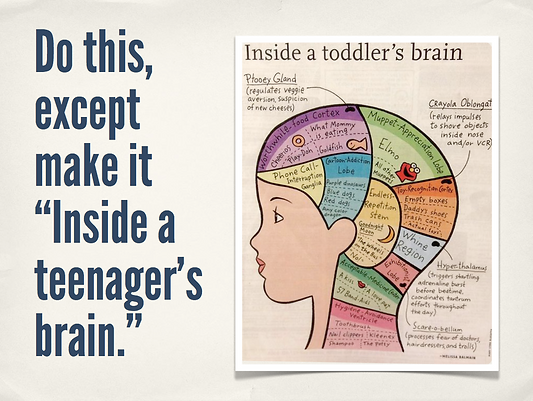
TEACHER and LIFE-LONG LEARNER
Jessica Pia
INSPIRE. INFORM. CONNECT. SUPPORT.
Global Citizenship Learning
The UN has many ideas and lesson plans for developing students' critical and global awareness of current issues that are happening all over the world:
http://www.globaleducationfirst.org/220.htm
The Global Classroom Project is an international forum that allows teachers and students to connect and collaborate with others around the world through various projects. I really want to participate in a collaborative learning project that connects students and teachers to others beyond the immediate walls of their own schools:

Book Lists
Below are some links to useful websites that I have used in the past and plan to continue to refer to in my lesson design and developing pedagogy in English language arts:
National Council Teachers of English:
Annotated reading lists of childrens' and adolescent literature:
http://www.reading.org/Resources/Booklists.aspx
For updates on current childrens' and adolscent literature, as well as lists of resources from The University of Calgary's Doucette Library:

Below are links to the Alberta curriculum for secondary English language arts:
-
English language arts 10-12 (-1 and -2 courses)
http://education.alberta.ca/media/645805/srhelapofs.pdf
-
English language arts 10-12 (knowledge and employability courses)
http://education.alberta.ca/media/645821/ela10_06.pdf
Alberta Learning also has some useful links for teachers, students, and parents:
-
Alberta Education Guide to Implementation in ELA (has information about assessment, unit planning, using film in the classroom, and more):
http://education.alberta.ca/teachers/program/english/resources/ela-guide.aspx
-
Alberta Education Guide for Students: Diploma Preparation PDF:
http://www.education.alberta.ca/media/1325271/03_ela30-1_studentguide_2014-2015.pdf
http://www.education.alberta.ca/media/7414686/02_ela30-2_student-guide_20140911.pdf
-
Alberta Education - Diploma Examples of the Standards for Students' Writing:
http://education.alberta.ca/admin/testing/diplomaexams/examples.aspx
Alberta Education Resources
This is an example of a writing prompt created by Luke Neff, a secondary teacher who has been incorporating writing prompts in his classes for the past few years. He has over 180 creatie writing prompts that are free for public use. Click on the link for more: http://writingprompts.tumblr.com
Writing Prompts

Popular Culture and Literacy
Diversity and Equity
The benefits of engaging with popular culture as part of everyday literacy practices are manifold: it can make content culturally relevant to and engaging for students (Guiterrez, 2011); it can provide opportunities for rich discussion between teachers and peers (Morrell, 2002); and it can create a rich learning environment in which students become teachers and teachers become students (Callahan and Low, 2004).
Below are some resources for lessons and topics that incorporate popular culture in the classroom:
http://popcultureclassroom.org/educators/
http://www.takepart.com/article/2013/11/20/hip-hop-education-sam-seidel
References: scholarly, peer-reviewed research articles about popular culture, literacy and pedagogy:
-
Black, R. (2009). English-language learners, fan communities, and 21st-century literacy skills. Journal of Adolescent & Adult Literacy, 52(8), 668-97. doi: 10.1598/JAAL.52.8.4.
-
Callahan, M. & Low, B. (2004). At the crossroads of expertise: The risky business of teaching popular culture. English Journal, 93(3), 52-7. doi: 10.2307/4128809
-
Collier, L. (2007). The shift to 21st century literacies. Council Chronicle 17(2), 4-8. Retrieved from http://lornacollier.com/The+Shift+to+21st+Century+Literacies.pdf
-
Curwood, J. (2013). The hunger games: Literature, literacy, and online affinity spaces. Language Arts, 90(6), 417-27. Retrieved from http://www.ncte.org.ezproxy.lib.ucalgary.ca/library/NCTEFiles/Resources/Journals/LA/0906-jul2013/LA0906Hunger.pdf
-
Gainer, J. (2010). Critical media literacy in middle school: Exploring the politics of representation. Journal of Adolescent & Adult Literacy, 53(5), 364-73. doi: 10.1598/JAAL.53.5.2
-
Hull, G., & Stornaiuolo, A. (2010). Literate arts in a global world: Reframing social networking as cosmopolitan practice. Journal of Adolsecent & Adult Literacy, 54(2), 85-97. Retrieved from http://www.jstor.org/stable/20775364
-
Guiterrez, P. (2011). Focus on policy: The right to be a fan. Language Arts, 88(3), 226-31. Retrieved from http://www.ncte.org.ezproxy.lib.ucalgary.ca/journals/la/issues/v88-3
-
Kist, W. (2003). Student achievement in new literacies for the 21st century. Middle School Journal, 35(1), 6-13. Retrieved from http://www.jstor.org/stable/23043703 .
-
Morrell, E. (2002). Toward a critical pedagogy of popular culture: Literacy development among urban youth. Journal of Adolescent & Adult Literacy, 46(1), 72-6. Retrieved from http://www.jstor.org/stable/40017507

The John Humphrey Centre for Human Rights website has educational resources for human rights education ranging in topics from disability to indigeneity. You have to request them from Scrib; however, they are all free. Here is the link:
https://www.scribd.com/JohnHumphreyCentre
Racial Equity Tools is a website that has extensive resources and information that will be useful to any educator who has a critical/transformational pedagogy. There are also resources to support developing communities of practice on the site:





Lesson Design

Below is the link to The ASCD's Understanding by Design framework for developing purposeful lessons that foreground learning outcomes: the skills and understandings that we want our students to develop through the tasks that we engage them in (Mctighe & Wiggins, 2012):
http://www.ascd.org/ASCD/pdf/siteASCD/publications/UbD_WhitePaper0312.pdf